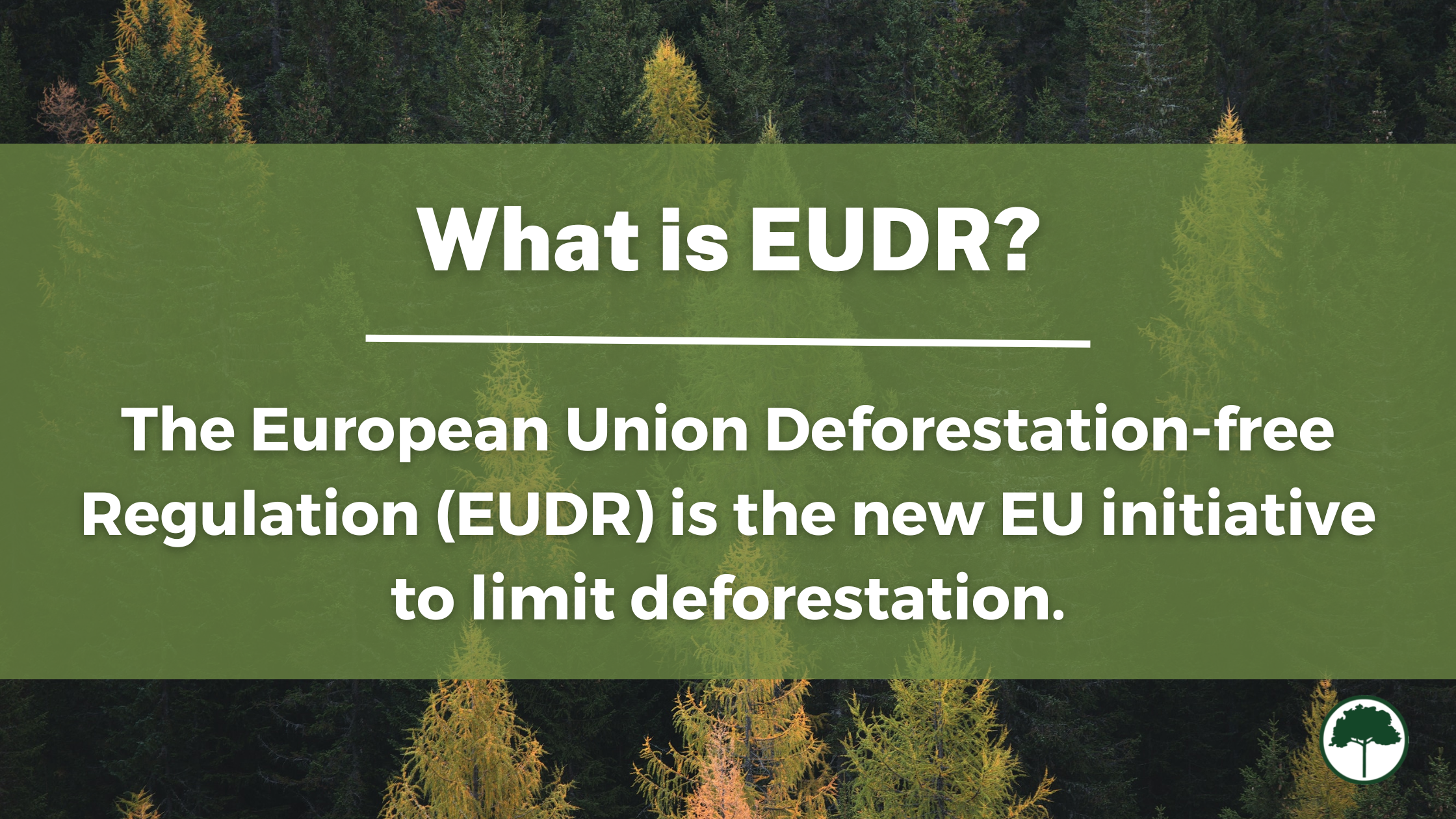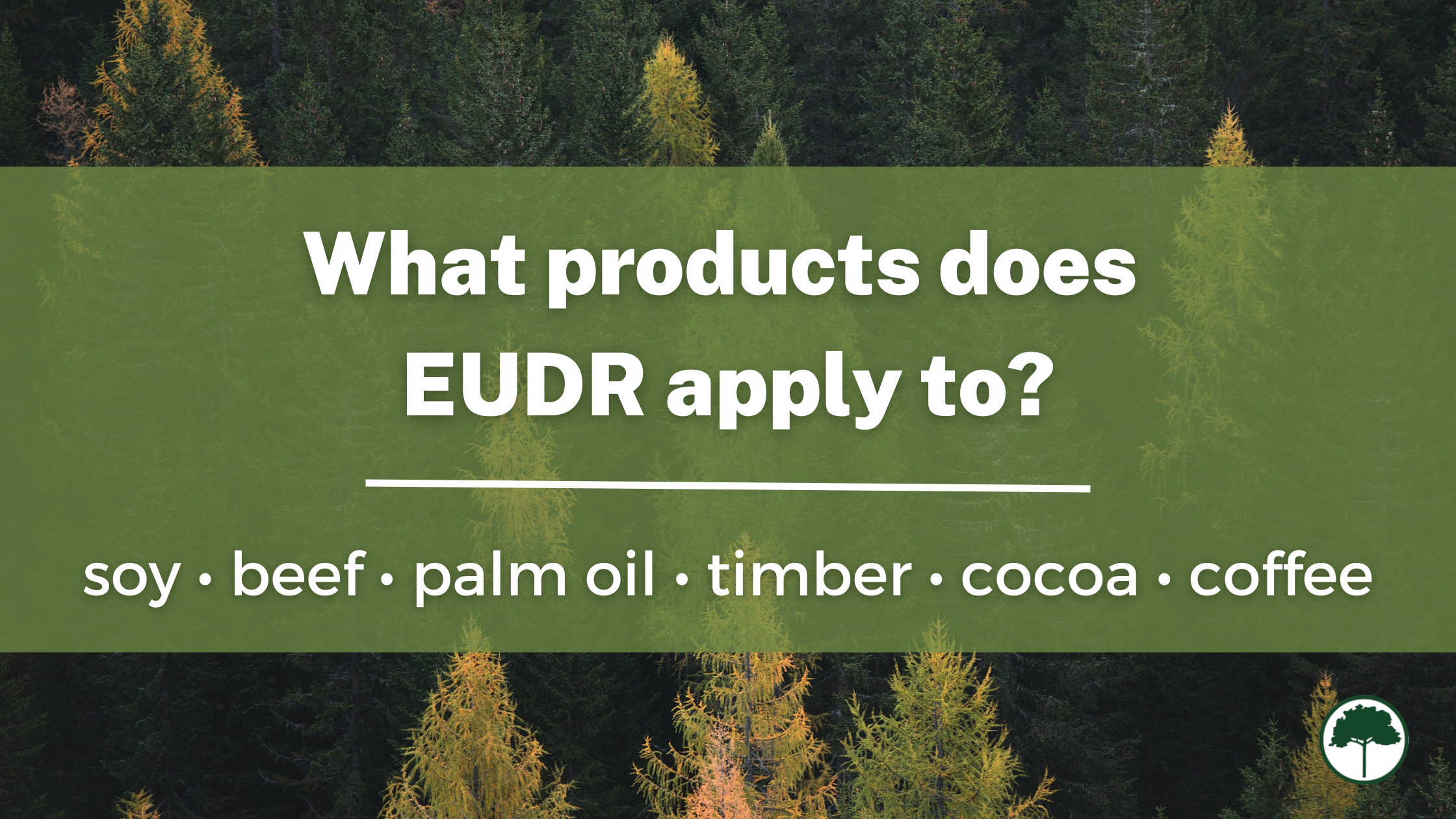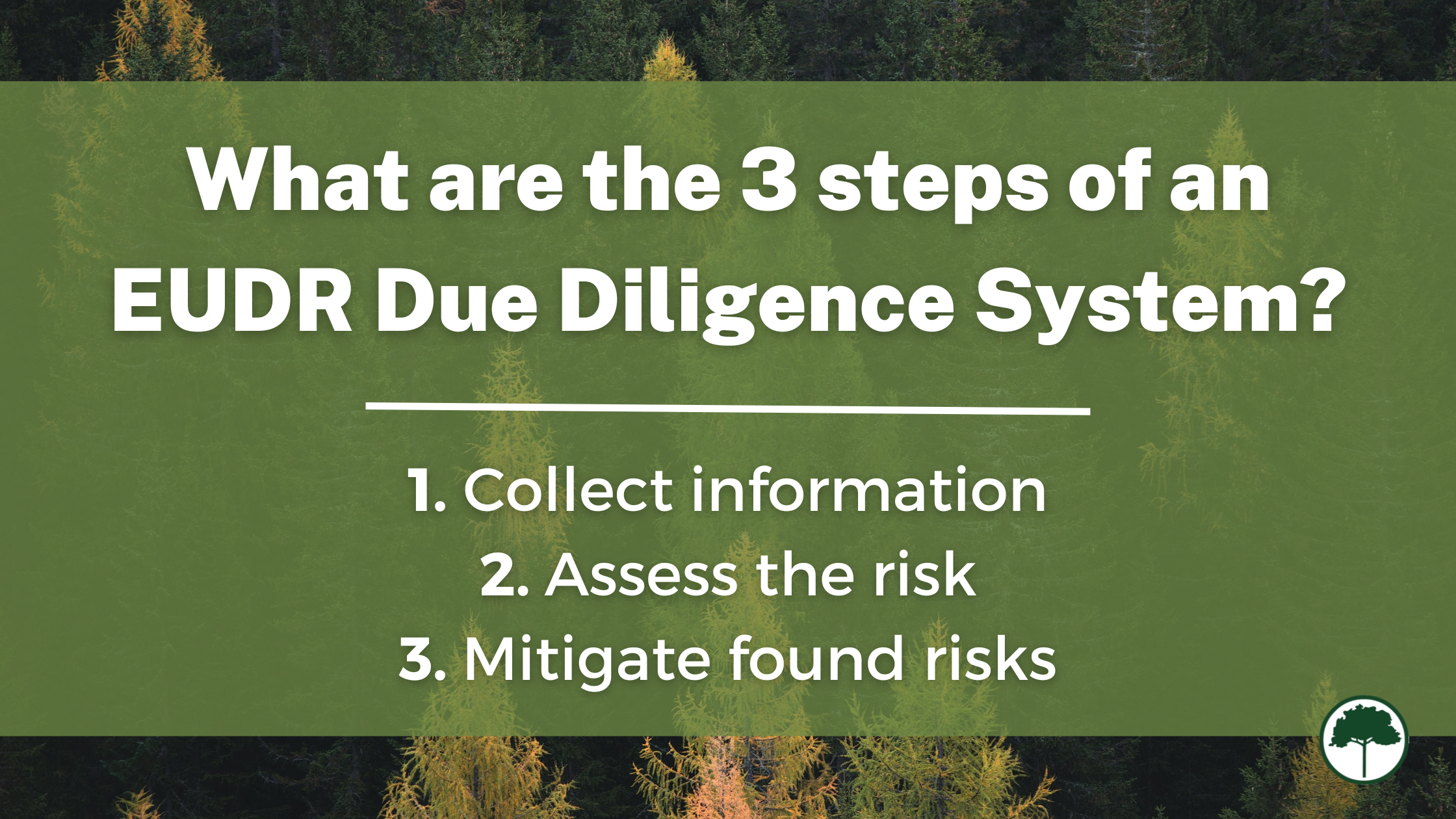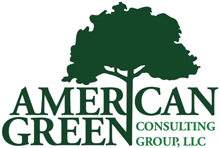What is EUDR?

EUDR stands for the European Union Deforestation-free Regulation, and it’s the new initiative in the EU to limit deforestation caused by worldwide forestry and agricultural activities.
Because Europe is one of the largest importers of products linked to deforestation (including 50% of the world’s coffee and 60% of all cocoa), they hope to lead by example as they reach for their goal of being a climate-neutral continent by 2050.
Important EUDR updates for 2025/2026
- In December 2024, the European Union granted a 12-month additional phasing-in period, making the law applicable on December 30, 2025, for large and medium companies and June 30, 2026, for micro and small enterprises.
- As of March 2025, American Green is no longer providing consulting or guidance on EUDR. However, we can recommend a trusted partner who does. Contact us if you’d like to be connected with our EUDR partner.
Get the EUDR highlights
Want to get an aerial view of EUDR before you continue reading? Check out our 2-minute YouTube video.
Please note: Since this video was released, some important details have changed. See “Important EUDR updates for 2025/2026” above.
How is EUDR different from EUTR ?
EUDR expands EUTR (European Union Timber Regulation) in two main ways:
- Expansion of scope of commodities
- Expansion of requirements on operators
“This is an ambitious idea. Others have failed in creating this kind of detailed traceability system. Some operators with simple supply chains will have easy access to the necessary data, but others working with more complex products may be facing a serious challenge – some may even be forced to change their entire sourcing model.” — Christian Sloth, Sustainability Program Manager at Preferred by Nature
Some key differences between EUDR and EUTR include:
- The EUDR covers a wider range of commodities. (See list below.)
- Operators and traders will now be sharing the due diligence responsibilities, including providing geolocation data.
- The scope of their due diligence is expanded to include, among many other concerns, sustainable forest management, labor and human rights, and customs regulations.
Who will be affected?
Those obligated by EUDR are “operators” and “traders.”
Operators are companies that first place products into the European market. They will be required to implement the due diligence on their supply chains to ensure they comply with EUDR regulations.
Traders will be responsible for storing information pertaining to their supply chain and then sharing that information to operators.
What products does EUDR apply to?

The EUDR targets the following commodities:
- soy
- beef
- palm oil
- timber
- cocoa
- coffee
Also included are products derived from these commodities, such as chocolate, rubber, furniture, and leather.
When will it go into effect?
The regulation was adopted the last week of May 2023. In December 2024, the European Union granted a 12-month additional phasing-in period, making the law applicable on:
- December 30, 2025, for large and medium companies, and
- June 30, 2026, for micro and small enterprises.
How does it work?

Under EUDR, operators are required to conduct due diligence to ensure that only deforestation-free products are introduced (for the first time) into the EU market.
A due diligence system (DDS) includes three main steps:
- Collect information – about a product’s supply chain (including geolocation).
- Assess the risk – of deforestation, forest degradation and any illegality that can be attached to the product.
- Mitigate found risks – to reduce risks to negligible levels.
Once this DDS is in place and these steps have been taken, a due diligence statement is submitted.
To learn more, check out the European Commissions Q&A about EUDR.
How can American Green help?
When it comes to EUDR, the U.S. has a unique challenge that doesn’t exist anywhere else in the world.
American Green is developing a trusted partnership with a group that can help advise and guide you through the EUDR certification process. Contact us directly if you’d like to be connected with our EUDR partner.
